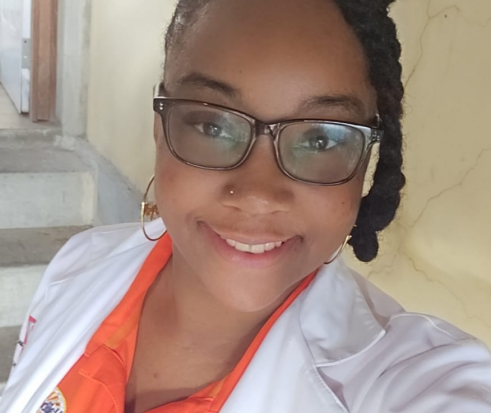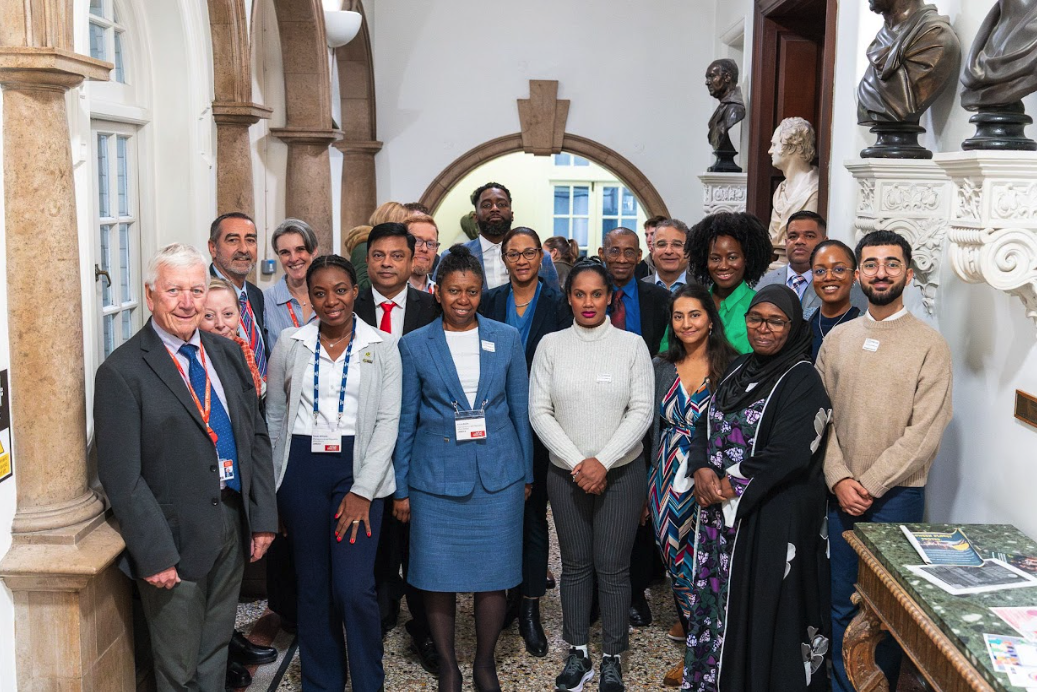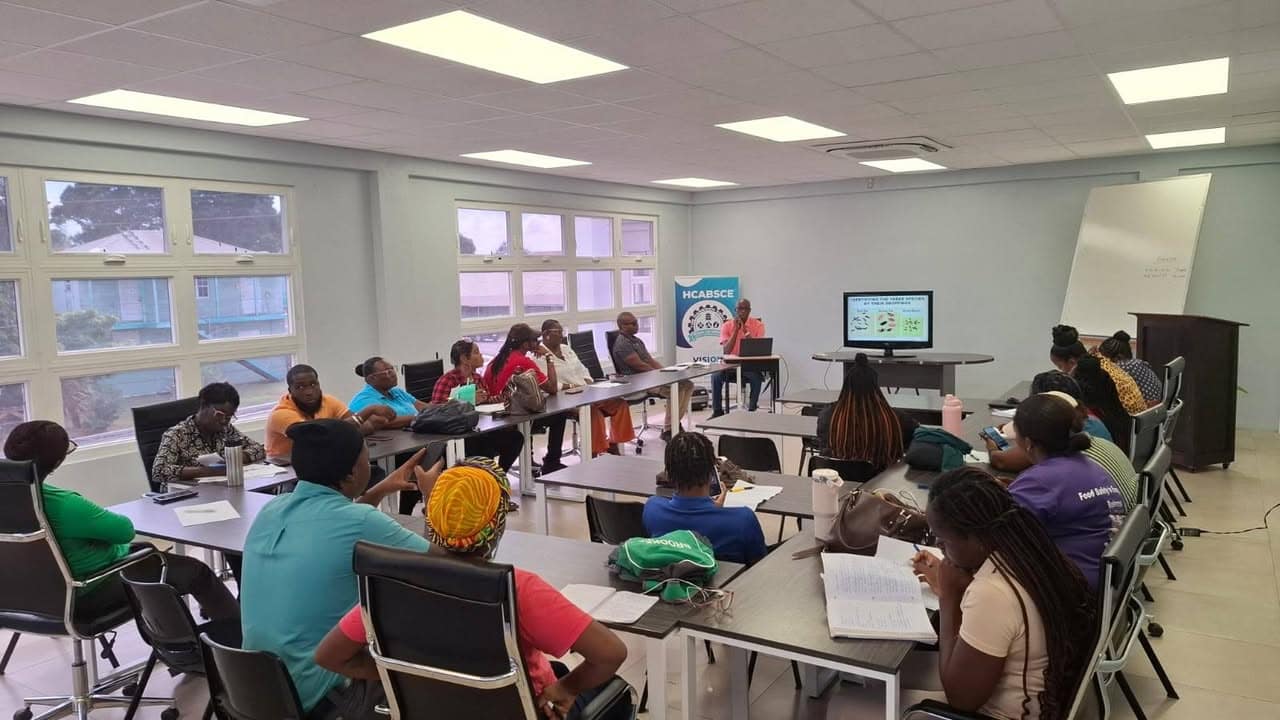Royette Charles, a prominent figure in Dominica’s health sector, is leading a powerful campaign to raise awareness about diabetes and promote healthier lifestyles. As an Executive Member of the Dominica Diabetes Association, Young Leader for Diabetes, and Pharmacy Technician, Ms. Charles is dedicated to inspiring hope among individuals living with diabetes while encouraging the broader population to adopt preventive measures. She emphasizes that diabetes is a serious health condition requiring consistent effort, discipline, and proactive lifestyle changes. Ms. Charles advocates for balanced routines, including healthier dietary choices, regular physical activity, and sustainable wellness habits. She also highlights the importance of empowering those already diagnosed to manage their condition effectively through proper monitoring and education. In her recent media address, she stressed the critical role of understanding how to use testing supplies correctly, noting that effective management of diabetes can significantly enhance quality of life and overall well-being.
分类: health
-
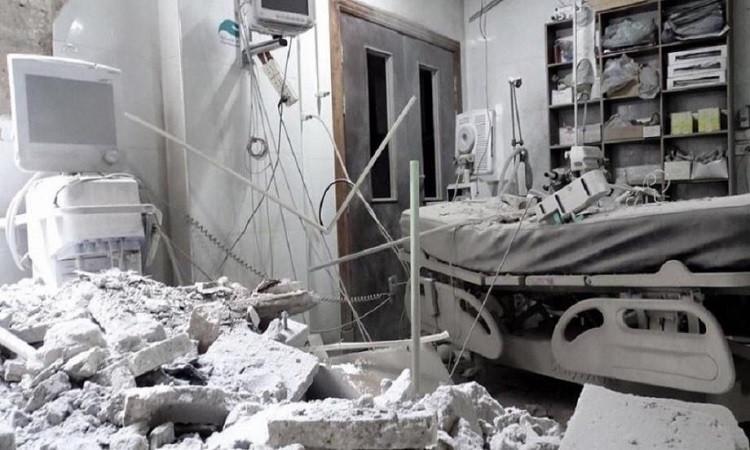
Gaza’s health system has collapsed due to Israeli aggression
The healthcare system in Gaza is facing an unprecedented crisis, as described by Munir Al-Barsh, the Director General of the Ministry of Health in the Palestinian coastal enclave. With a population exceeding two million, Gaza’s hospitals are grappling with severe shortages of essential resources, including medicines and medical supplies. Al-Barsh revealed that 84% of basic medicines and 40% of emergency medicines are unavailable, while the lack of medical supplies has surpassed 71%. Critical items such as gauze and medical solutions are in critically short supply, with reserves expected to last only a month. This scarcity is severely impeding the delivery of primary healthcare services. Additionally, the healthcare infrastructure is collapsing due to inconsistent fuel supplies, which are essential for powering health facilities. Communications systems have failed, and laboratories are nearly entirely shut down. Despite a recent truce and Israel’s commitment to allow aid, only five trucks carrying medical supplies enter Gaza weekly—a starkly insufficient amount to address the dire needs of the population. The situation underscores the urgent need for international intervention to prevent a full-scale humanitarian disaster.
-
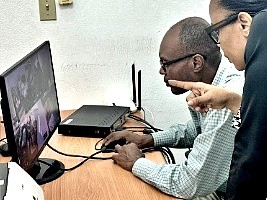
Nippes : Strengthening of security at the Central of inputs and medication
The Nippes Health Directorate (DSNI) in Haiti has launched a comprehensive initiative to bolster the security, transparency, and efficiency of managing medical supplies and medications for healthcare institutions across the department. Spearheaded by Dr. Esther Ceus Dumont, the Departmental Health Director, the initiative includes structural upgrades and enhanced oversight at the Departmental Supply Center (CDAI), a critical hub for storing essential health products provided by the Ministry of Health and its partners.
To further strengthen security, the DSNI has introduced a dedicated video surveillance operator to continuously monitor activities at the CDAI, supplementing the existing camera system. This measure ensures round-the-clock vigilance and safeguards the integrity of medical supplies. Dr. Dumont also convened a meeting with CDAI staff to emphasize the importance of individual and collective responsibility in managing health resources, stressing the need for professionalism and transparency.
Additional measures include upgrading the monitoring system, enhancing physical security around the facility, and providing ongoing staff training on ethical and technical aspects of supply management. These efforts aim to establish stricter controls, improve traceability, and create a secure working environment, ensuring that health products are effectively distributed to institutions and ultimately benefit the local population.
-

First US Human Case of ‘Rare Bird Flu Strain’ Confirmed in Washington
Health authorities in Washington have reported the first human case of the rare H5N5 bird flu strain in the United States in nearly a year. The patient, an elderly individual with pre-existing health conditions, was hospitalized in early November after exhibiting symptoms such as high fever, confusion, and respiratory distress. This marks the first instance of the H5N5 strain being detected in humans, although it has previously been identified in animals. State epidemiologist Scott Lindquist emphasized the severity of the patient’s condition during a briefing, as reported by The Washington Post. Officials have assured the public that the risk of widespread transmission remains low. The patient maintains a mixed backyard flock that had contact with wild birds, prompting state and federal agencies to investigate the source of the infection. Health authorities have confirmed no additional cases of H5N5 infection beyond the initial patient. Bird flu, which originates in wild aquatic birds, can spread to poultry and occasionally mammals. Human infections are rare and typically result from direct exposure to infected animals. Cases often increase during colder months as migratory birds facilitate the spread of the virus.
-

‘Tap into the happy’
The aftermath of Hurricane Melissa, which struck southwestern Jamaica on October 28 with devastating 185 mph winds and torrential rainfall, has left a lasting impact on the mental health of children in the region. Among the most affected is Mae Allen’s two-year-old grandson, who now cries at the mere sound of raindrops, a stark reminder of the traumatic evacuation his family endured during the storm. This fear is just one example of the psychological scars left by the Category 5 hurricane, which claimed over 40 lives and left hundreds homeless.
-

US records second human bird flu death of year
A Washington state resident has become the first recorded human case of the rare H5N5 avian influenza strain, marking a significant development in global health monitoring. The individual, described as an older adult with pre-existing health conditions, succumbed to the virus after being hospitalized earlier this month. The Washington State Department of Health confirmed the diagnosis, which was subsequently verified by the US Centers for Disease Control and Prevention (CDC).
Health officials emphasized that the risk to the general public remains low, as no other cases have been reported, and there is no evidence of human-to-human transmission. The patient reportedly kept a backyard flock of mixed domestic birds, which is believed to be the source of the infection.
This incident marks the second human fatality linked to avian influenza in the United States this year, following a death from the H5N1 strain in Louisiana in January. Globally, the World Health Organization (WHO) has documented over 1,000 human cases of bird flu across 25 countries since 2003, encompassing all known strains of the virus. The CDC has recorded more than 70 human cases of bird flu in the US this year alone, highlighting the ongoing need for vigilance in monitoring zoonotic diseases.
